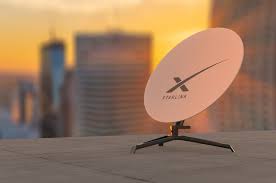Elon Musk’s Starlink, which promised a new era of high-speed internet connectivity in Africa when it debuted in Nigeria in January 2023, is now facing significant regulatory challenges in several African countries, including South Africa, Zimbabwe, Senegal, and Nigeria. The reasons behind these bans and restrictions shed light on the complex landscape of internet access in the region.
In South Africa, on August 14, 2023, the government took a significant step by banning the import and distribution of Starlink kits. The decision was rooted in legal requirements outlined by the Electronics Communications Act (ECA), which mandates that historically disadvantaged groups (HDGs), including black people, youth, women, and people with disabilities, must hold 30% of a company’s shares to obtain approval for telecoms licenses and operate a broadband service locally. Starlink could not meet these requirements, leading to the ban.
Read also: Musk halts Ukrainian-Russia attacks, prevents Starlink usage
Zimbabwe’s Licensing Demands
Early in September, Zimbabwe’s Postal and Telecommunications Regulatory Authority (POTRAZ) issued warnings to Starlink users and dealers, stating that they must possess the necessary licenses before operating in the country. Zimbabwe presented two options to Starlink: apply directly for a license or partner with local operators to offer services. Authorities in Zimbabwe expressed concerns about unauthorized distribution of Starlink products, requiring local resellers to obtain a virtual network operator (VNO) license to operate Starlink services legally. Operating without a valid license is deemed illegal and subject to legal penalties.
Senegal’s Crackdown on Unauthorized Sales
In Senegal, the government has intensified efforts to crack down on those selling Starlink kits without proper authorization. This move followed the government’s third shutdown of Starlink’s internet services within a year. On August 7, the government arrested five individuals for selling Starlink terminals without the required licenses. The government has outlined stringent penalties, including up to five years in prison or a $100,000 fine, for those engaged in unauthorized marketing and provision of internet access.
Senegal arrests Starlink marketers, suspends internet connectivity
Nigeria’s Cost Concerns
In Nigeria, the Nigerian Communications Commission (NCC) is in discussions with Starlink to address concerns about the high costs associated with the satellite company’s services. Users have raised complaints about the affordability of Starlink’s services. The Executive Vice Chairman of the Nigerian Communications Commission, Umar Danbatta, emphasized the need to make Starlink services more affordable to bridge the country’s connectivity gap, particularly in rural and underserved areas. Despite numerous internet satellite providers in Nigeria, Starlink stands out in terms of speed and service quality. The NCC is exploring ways to make Starlink terminals more accessible to Nigerians.
The regulatory challenges facing Starlink in Africa highlight the delicate balance between expanding high-speed internet access and adhering to local regulatory frameworks. As the company navigates these hurdles, it remains to be seen how it will adapt to meet the diverse needs and regulations of the African continent.




